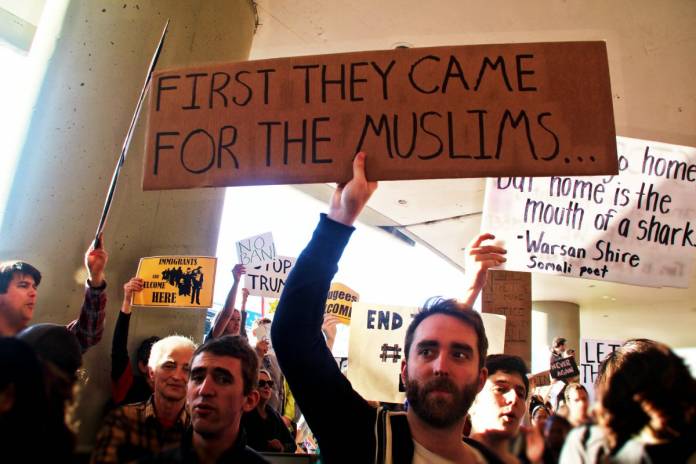On Monday, a three-judge panel of the Ninth Circuit Court of Appeals unanimously upheld a preliminary injunction blocking the enforcement of President Donald Trump’s revised travel ban.
The original ban, put in place via an executive order just a week after Trump took office, targeted six Muslim-majority countries and suspended the entry of refugees to the US. Sudden implementation of the original ban caused chaos and sparked protests at airports across the country, and a federal injunction was issued within a few hours.
The Monday ruling blocks Trump’s second “narrower” executive order that was issued in March and intended to address legal issues raised by the federal appeals court earlier. The narrower ban was stopped by a federal court in Hawaii before it was implemented; that injunction was upheld on Monday by the Court.
This is the second time a federal appeals court has held up the ban. The Fourth Circuit Court of Appeals, based in Virginia, ruled in a separate case on May 25th. It found that the ban violated the first amendment, whereas the Ninth Circuit found that the prudent had overstepped his authority in issuing the ban. The Supreme Court has yet to decide whether it will hear the case.
The court on Monday also found that the administration would have to follow a specific process if it intended to block access to refugees. The Ninth Circuit order noted that, “The Immigration and Nationality Act (‘INA’) gives the President broad powers to control the entry of aliens, and to take actions to protect the American public. But immigration, even for the President, is not a one-person show.”
The order also noted that: “We conclude that the President, in issuing the Executive Order, exceeded the scope of the authority delegated to him by Congress. In suspending the entry of more than 180 million nationals from six countries, suspending the entry of all refugees, and reducing the cap on the admission of refugees from 110,000 to 50,000 for the 2017 fiscal year, the President did not meet the essential precondition to exercising his delegated authority.”
While the Trump administration has repeatedly cited prevention of terrorism as the main purpose of the ban, the court cited that Department of Homeland Security reports indicated that only a few people from the affected countries — Iran, Libya, Sudan, Somalia, Syria, and Yemen —were involved in terrorism in the U.S.
The Trump administration has stated that it intends to take the issue to the Supreme Court, and believes that the ban will be upheld despite multiple rulings from federal courts.




